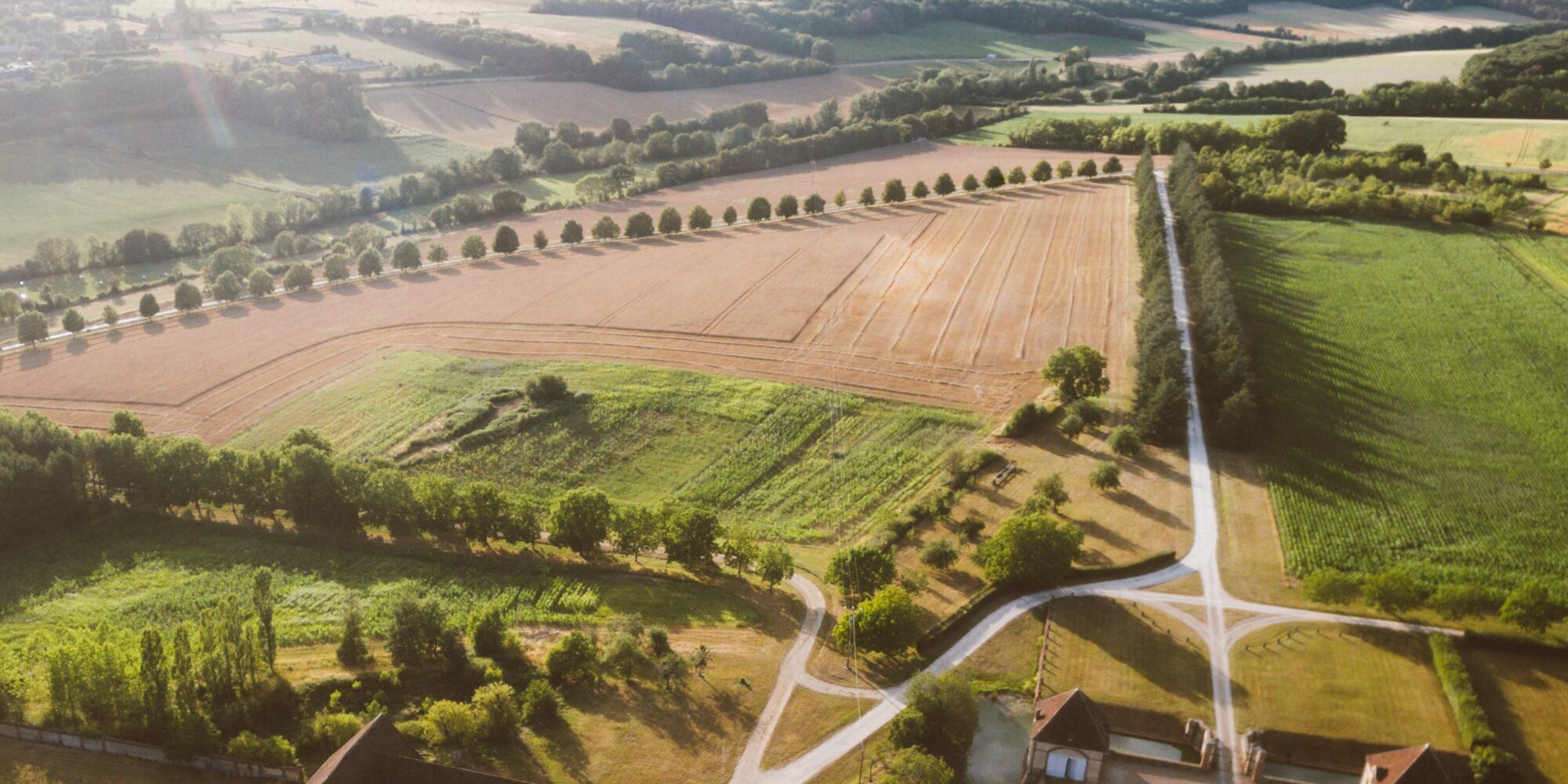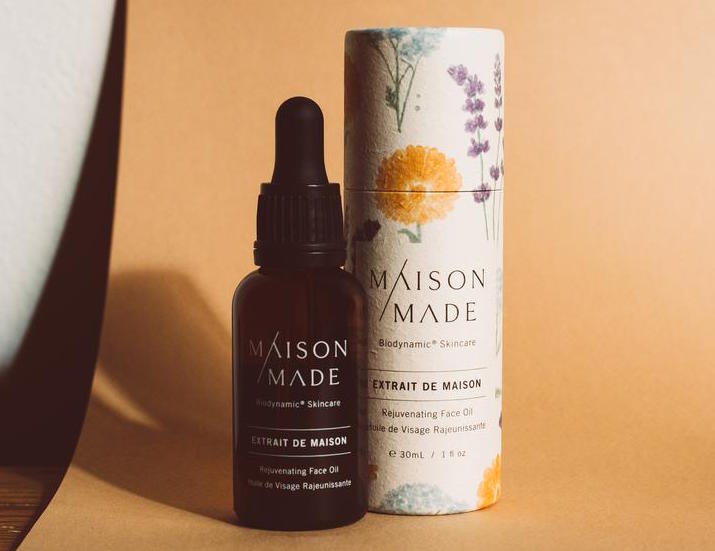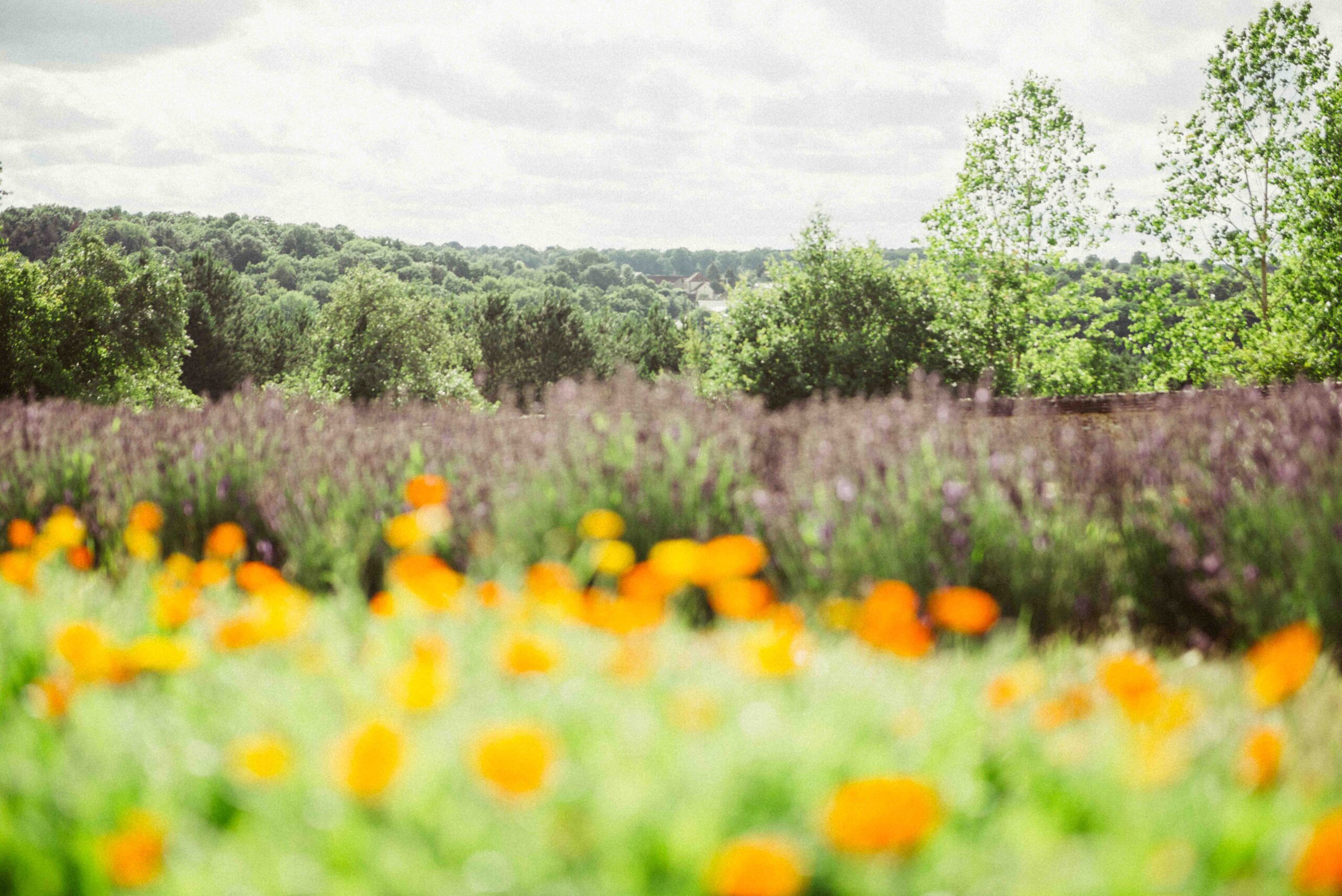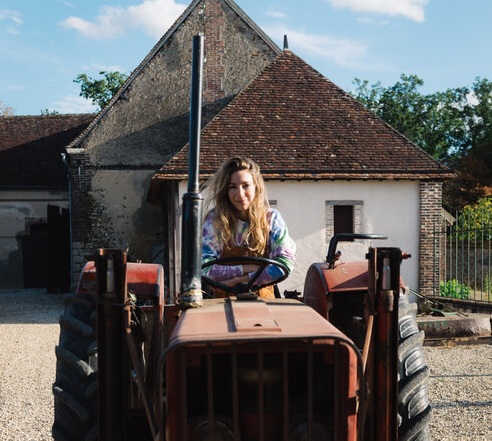
“Hermes Of The Skincare Industry:” Maison/Made Receives Biodynamic Certification For Its Sustainable Ingredient Cultivation
“In the last five years, we’ve seen the uptick in natural brands and how saturated the space was becoming,” says Adrien de Botin, who founded Maison/Made with his wife Carolina Prioglio. “We knew that, if we wanted to enter the market, it had to be with a genuine product based on craftsmanship. We see biodynamic farming as artistry within agriculture. We didn’t want to just a bottle a pre-made formula and, then, amp it up with fancy marketing.”
Maison/Made has gone beyond the fancy marketing by becoming certified biodynamic through Demeter Association Inc. De Botin reports it’s the first luxury skincare brand to achieve the certification from the organization that typically bestows it onto vineyards. Other beauty brands, including Martina Gebhardt Natural Cosmetics and Eminence Organics, have had products certified biodynamic by Demeter, however. According to Demeter’s definition, biodynamic farming is “self-contained, self-sustaining and follows the cycles of its local ecology,” and Maison/Made notes it draws “carbon out of the atmosphere.”
“In a space where to be first in anything is very rare, we are quite proud. I feel that our story is unique, and this is acknowledging the explosion of new indie brands in recent years,” says de Botin. “Being the first biodynamic-certified luxury skincare brand means many things, but most of all it represents our vision to create a new kind of luxury in the industry, the kind that holds sustainability equal to quality and craftsmanship.”

De Botin’s aunt has been biodynamic farming for more than 30 years, and taught de Botin and Prioglio the practices to implement it on farm in the Burgundy hills that’s been maintained for six centuries by de Botin’s family and was passed down to them in 2017. They started with a patch of calendula and slowly expanded from there. Maison/Made grows ingredients, including calendula, yarrow and nettle, for the two stockkeeping units in its core Maison collection: Extrait de Maison Biodynamic Face Oil and Rituel de Maison Biodynamic Restorative Cleansing Oil.
Prioglio and de Botin launched Maison/Made with one SKU in 2019. Prior to the brand and moving to New York about seven years ago, Prioglio had a successful career in fashion journalism in her native Argentina. In New York, she worked for a fashion production company that ran events. “The curtain was pulled back on how wasteful the fashion industry was. Events takes months of planning, but last less than 20 minutes, and everything is just thrown in the trash afterwards,” she says. “I didn’t want to spend my life contributing to a really big problem.”
“Our formulation philosophy is to create products that are as close to nature as possible.”
Having long enjoyed skincare, she decided to change paths and studied organic skincare formulation with Formula Botanica. “I wanted to learn as much as possible before using a consultant to help me polish certain aspects of the formulations, but quickly realized that beauty products are only as good as the ingredients in the jar,” says Prioglio. She and de Botin began thinking how they could retain control over the process and connected the dots to de Botin’s family land. The pair connected directly with farmers across Europe to source the ingredients in Maison/Made’s formulas not from their farm. The farmers required some convincing, and it took two years to fully source the ingredients for the brand.
Following Maison/Made gaining Demeter’s biodynamic certification, an endeavor that took two years as well, de Botin says the community was very encouraging and welcoming as the brand repurposes the natural waste products of biodynamic farming. “They have an extra revenue stream,” he explains. “For our berry seed oils, they’d grow the fruit to make jam and throw the seeds into the compost, but now they use them to make oils, which are exclusively ours as we commissioned it from them.”

With an ethos de Botin and Prioglio call “jardin to bottle,” Prioglio develops formulas before Maison/Made grows and harvests the plants needed for them. Prioglio is committed to the brand full-time and de Botin, who’s employed by a large French fashion brand, dedicates night and weekends to it. The couple sign offs of on all details together, but de Botin focuses on handling operations, finance and logistics while Prioglio concentrates on formulation, marketing and branding. Maison/Made’s products are bottled and disturbed by Prioglio from the brand’s studio in New York.
Currently, it has two collections spanning six products. Priced at $60 and $165 respectively, the cleansing oil and facial oil in the Maison collection are the hero products of the range. “Our formulation philosophy is to create products that are as close to nature as possible,” says Prioglio. “They are high-performing, complex formulas using classic ingredients rather than gimmicky skincare. They are the types of products you want to return to no matter how much you like trying out other things.” In addition to its Maison collection, Maison/Made’s Verdant collection is comprised of four hydrosols priced at $30 each. Prioglio says, “They highlight the beauty and potency of single- or limited-ingredient products that are dependent on seasonality.”
“We want to be the Hermes of the skincare industry that leans on heritage, craftsmanship and tradition.”
Maison/Made’s products are available on its website. The brand has fielded considerable retailer interest, and Prioglio and de Botin plan to flesh out its wholesale strategy this year. Maison/Made’s biodynamic foundation means it’s unlikely to be able to deliver the number of units a major chain would order. “We limit our production based on the boundaries of the farm and our biodynamic partners. Our future partners will have to be comfortable that they will probably sell out frequently due to our biodynamic production limitations. The respect for the land dictates the pace of growth for the brand,” says de Botin. “We want to be the Hermes of the skincare industry that leans on heritage, craftsmanship and tradition.”
Maison/Made didn’t trade for eight months during the pandemic, and it’s challenging for the brand to project sales for next year amid ongoing uncertainty. “Our strategy isn’t to hit the mass market and be available everywhere, so the financials of how we constructed the company was always to have lower volumes by design,” says de Botin. “I can foresee the company being profitable fairly quickly with more exposure and a wider consumer base.”

To increase its audience, Maison/Made is marketing via paid social and search. “Using more long-tail key word search has done well for us because we’re catching consumers at a point in their journey where they really want something specific,” says de Botin. For 2021, the brand is evaluating traditional methods of offline marketing. De Botin mentions, “I’d love to be on a billboard or have poster boards on the streets, assuming that the world opens up a bit.” He and Prioglio are also keen to secure a public relations agency to amplify their brand’s press reach. He says, “We’ve had several conversations with agencies, but we’re trying to find the right fit.”
Their main goal is to get out the message of the importance of biodynamic farming in the beauty industry. “With the pandemic, people are valuing craftsmanship again, and we focus on the craft. We’re trying to create a very noble product that respects the land and is considerate of the entire lifecycle of the product,” says de Botin. “We truly didn’t want to create just another beauty brand, we wanted something true to us that wasn’t a burden to the planet.”





Leave a Reply
You must be logged in to post a comment.